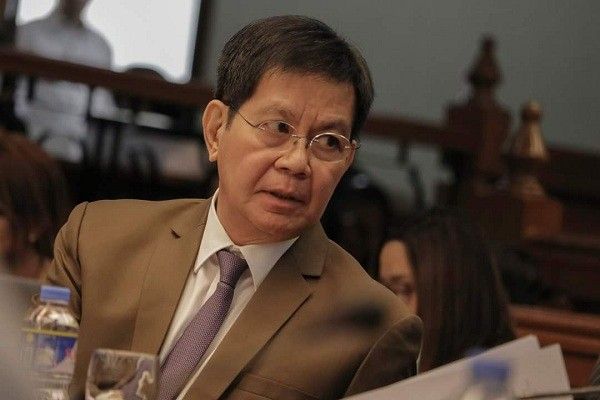Lacson asks: Does Senate reso on quo warranto ruling encroach on SC powers?

MANILA, Philippines — Sen. Panfilo Lacson raised the possibility that the Senate resolution on the Supreme Court’s quo warranto ruling may be an “encroachment” on the judiciary.
Sen. Francis “Kiko” Pangilinan presented Senate Resolution 738, “Expressing the Sense of the Senate to Uphold the Constitution on the matter of Removing a Chief Justice from Office”, on the Senate floor past midnight on Thursday.
The resolution specifically cites the case of the former Chief Justice Maria Lourdes Sereno who was ousted by her peers by a vote of 8-6, granting Solicitor General Jose Calida’s quo warranto petition.
But Lacson, during the interpellation that happened in wee hours of May 31, asked whether the Senate can interpret the 1987 Constitution since the resolution expresses the Senate’s assertion on its exclusive mandate to impeach a chief justice.
READ: Senate resolution pushed vs SC quo warranto ruling
“While it is true that the final arbiter of the constitution [is the Supreme Court], as legislators, we are also called upon to interpret the constitution,” Pangilinan argued.
Lacson countered that that was just Pangilinan’s opinion. He challenged Pangilinan: “It is only the SC that can interpret the constitution. If you can show me a provision that the Senate or Congress can interpret the constitution, I will sign it.”
Pangilinan countered: “It is not so much that we are interpreting the constitution, as we are upholding the constitution as we argue that the sole power to remove is vested in the Senate, in an impeachment trial.”
“What the resolution proposes is just to express the sense of the Senate. And I think even an ordinary citizen can express his or her view on this matter,” he added.
He also recalled that should the Senate body adopt the resolution, it would not be the first time that the Senate expressed its opinion or sense on a matter outside its halls.
Lacson replied: "Is it not encroaching on the powers of the SC that has acquired orig jurisdiction over petitions of quo warranto?"
‘May’ in Constitution
Sen. Risa Hontiveros backed up Pangilinan’s argument. She said: “The quo warranto process of the Supreme Court has had the effect of preventing us in Congress from exercising our own mandated under the Constitution.”
Lacson stressed that the provision on the Constitution on impeachable officers has the word “may.”
Citing Article XI, Section 2 of the Constitution, Lacson stressed: “The operative is ‘may.’”
The said provision reads: “The President, the Vice-President, the Members of the Supreme Court, the Members of the Constitutional Commissions, and the Ombudsman may be removed from office on impeachment for, and conviction of, culpable violation of the Constitution, treason, bribery, graft and corruption, other high crimes, or betrayal of public trust. All other public officers and employees may be removed from office as provided by law, but not by impeachment.”
Christian Monsod, one of the framers of the 1987 Constitution, earlier said that the section should be interpreted as a whole, and not by sentence.
Pangilinan echoed this, saying that the second sentence qualifies the word “may” that states that the chief justice can only be removed in office through an impeachment, and not a quo warranto petition.
RELATED: Monsod: Senate should assert its power on removal of chief justice
The Senate moved to suspend the interpellation of the resolution.
Meanwhile, Sereno, on Wednesday, filed her appeal before the SC, in a bid to overturn her ouster.
Should her motion for reconsideration be denied, the ruling will be deemed final.
READ: In appeal of ouster, Sereno warns of 'far-reaching consequences' of SC ruling
- Latest
- Trending





























